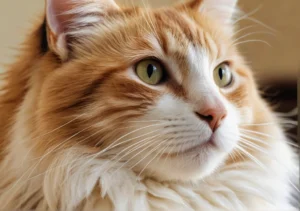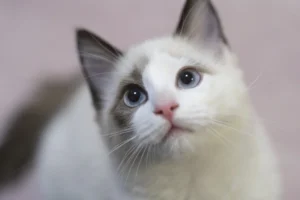As any cat owner can attest, dealing with sudden bad behavior from our feline companions can be frustrating and confusing. One moment they’re cuddly and sweet, the next they’re knocking things off shelves and scratching up furniture. If you find yourself wondering, “Why is my cat being bad all of a sudden?” you’re not alone. Let’s explore some possible reasons for this change in behavior.
Changes in Routine
Has your cat been acting out suddenly? Well, before you start pulling your hair out in frustration, take a moment to consider if there have been any recent changes in your furry friend’s routine. Cats are creatures of habit, and even the smallest alterations can cause them stress, leading to bad behavior.
For example, if you’ve recently moved to a new home, started a new job with different hours, or even just switched up your cat‘s feeding schedule, these changes could be throwing them off balance. Cats thrive on predictability, so any disruptions to their usual routine can result in them acting out.
To help your cat adjust, try to maintain a consistent routine as much as possible. Stick to regular feeding times, ensure they have a quiet and safe environment to retreat to, and provide plenty of enrichment and playtime to reduce their stress levels.
And remember, patience is key. Changes in routine can take time for your cat to adapt to, so be gentle and understanding as they navigate through these transitions.
Health Issues
When your cat starts misbehaving out of the blue, it’s important to consider that health issues could be at play. Cats are masters of hiding their pain and discomfort, so sudden changes in behavior could be their way of communicating that something is wrong.
If your cat is usually affectionate but has become aggressive, withdrawn, or is avoiding interaction, it’s time to schedule a visit to the veterinarian. Underlying health problems such as urinary tract infections, dental issues, or even digestive problems could be triggering their bad behavior.
In addition to a check-up with the vet, make sure your cat is up to date on their vaccinations and preventative care. Providing a balanced diet, regular exercise, and plenty of fresh water can also help maintain their overall health and well-being.
Remember, proactive care is key to preventing health issues that could manifest as behavior problems. By staying vigilant and attentive to your cat’s well-being, you can ensure they stay happy and healthy for years to come.
Lack of Stimulation
Is your cat suddenly acting out? Well, they might just be feeling bored! Just like us, our feline friends need mental and physical stimulation to stay happy and well-behaved. Without enough playtime and activities to keep them engaged, they may start exhibiting naughty behavior. To prevent this, make sure to provide plenty of toys, scratching posts, and interactive play sessions for your cat. A bored cat is more likely to get into trouble, so keep them entertained and stimulated to curb the bad behavior.
Attention Seeking
Is your cat meowing non-stop or knocking things over for seemingly no reason? They might just be craving some attention from you! Cats can act out as a way to seek attention from their owners, especially if they feel neglected or overlooked. Make sure to spend quality time with your furry friend, petting them, playing with them, and giving them the attention they need. By showering them with love and affection, you can help address their attention-seeking behavior and strengthen your bond with your cat.
Stress or Anxiety
In addition to lack of stimulation and attention-seeking behavior, sudden bad behavior in cats can also be a sign of stress or anxiety. Changes in their environment, such as moving to a new home, introducing a new pet, or even disruptions in their daily routine, can trigger anxiety in cats and lead to unwanted behavior. If you suspect that your cat is feeling stressed, try to create a calm and safe space for them, provide plenty of hiding spots, and consider using pheromone diffusers to help relax them. If the behavior persists, consult with your veterinarian for further guidance.
Stress and Anxiety
Is your feline friend suddenly acting out? Well, stress and anxiety might be the culprits here. Cats, just like humans, can get overwhelmed by changes in their environment or routine. Moving to a new home, a new pet in the house, or even loud noises can trigger stress and anxiety in your cat, leading to bad behavior like aggression or excessive grooming. To help your furry friend feel more at ease, create a calm and predictable environment, provide hiding spots, and engage in interactive playtime to reduce their anxiety levels. If the behavior persists, consider consulting with a vet to explore additional solutions. Remember, a happy cat is a well-behaved cat!
Territory Issues
When your cat is suddenly acting up, it could stem from territorial instincts. Cats are naturally territorial creatures, and any perceived threat to their territory can trigger defensive behavior. This might include spraying, scratching, or even aggression towards other pets or people in the home. To address this, ensure your cat has plenty of vertical space to claim as their own, provide multiple litter boxes in different areas of the house, and offer scratching posts to help them mark their territory in a less destructive way. By understanding and respecting your cat’s territorial nature, you can help prevent and manage sudden bad behavior effectively.
Additional Insight:
Here’s a pro-tip: Try using synthetic pheromone diffusers or sprays in your home to help your cat feel more secure and reduce territorial stress. These products mimic the natural pheromones that cats produce, creating a calming environment that can alleviate territorial issues and promote better behavior.
Aging and Cognitive Decline
As our beloved feline friends age, it’s natural for them to experience changes in behavior. Just like us humans, cats can also suffer from cognitive decline, which may manifest as sudden bad behavior. Keep an eye out for signs such as disorientation, increased anxiety, or changes in sleep patterns.
It’s essential to provide extra comfort and support to older cats during this phase. Make sure they have easy access to their favorite spots, maintain a consistent routine, and consider enriching their environment with stimulating toys or puzzle feeders. Additionally, regular vet check-ups can help catch any underlying health issues that may be contributing to their behavior changes.
Remember, patience is key when dealing with older cats. Understanding their needs and adapting your care routine can go a long way in helping them feel more comfortable and secure in their senior years.
Interesting Fact: Cats are crepuscular animals, meaning they are most active during dawn and dusk.
By knowing that cats are naturally more active during dawn and dusk, you can adjust your expectations and interactions with your furry friend accordingly. This can help prevent frustration on both ends and promote a more harmonious relationship with your cat.
To accommodate your cat’s crepuscular nature, try engaging in play sessions during these times to help burn off excess energy and prevent them from acting out. Providing interactive toys or a window perch where they can observe the outside world during these peak activity periods can also help keep them entertained and satisfied. Remember, a happy cat is less likely to exhibit problematic behavior.
Alex, a passionate animal lover, has experience in training and understanding animal behavior. As a proud pet parent to two dogs and three cats, he founded AnimalReport.net to share insights from animal experts and expand his knowledge of the animal kingdom.




